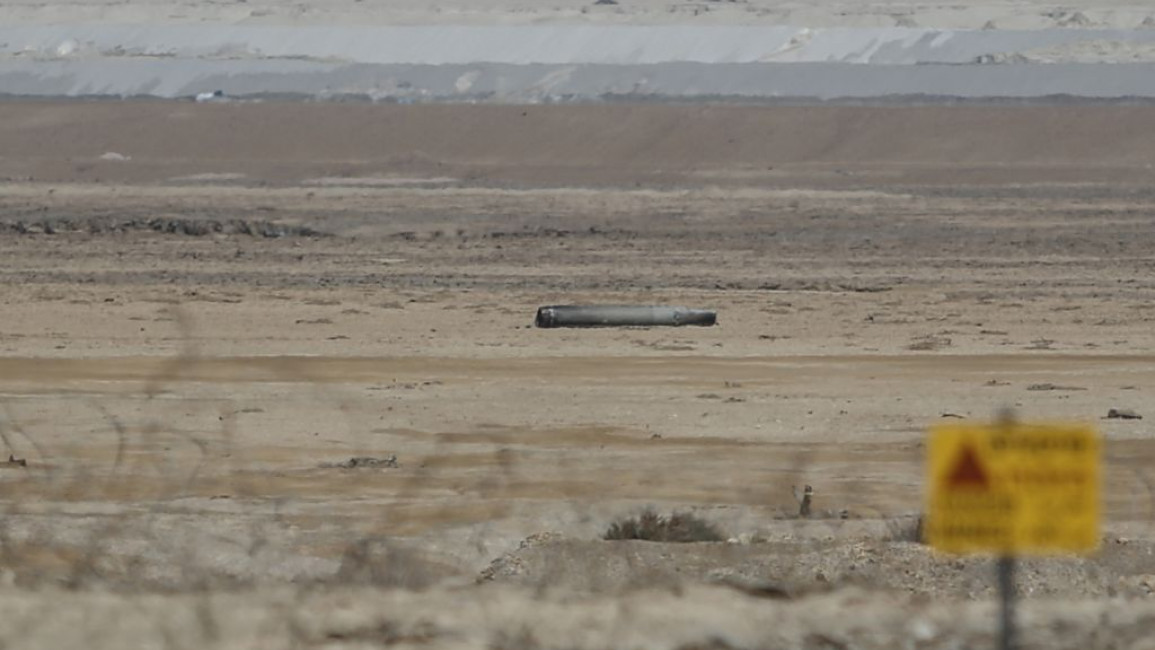Israel wanted to demolish home of Palestinian Bedouin girl injured in Iran strikes
Israeli authorities planned to demolish the family home of a seven-year-old Palestinian Bedouin girl, who was the only person serious injured in Iran's missile barrage on Israel last month, local media have reported.
Amina Hassouna is still hospitalised, recovering from severe injures caused by an Iranian ballistic missile that landed near her her home in the Negev village of Al-Fura on 13 April.
As Amina lay in a hospital bed from shrapnel wounds, Israeli authorities appeared to proceed with plans to demolish her home, only reversing course due to widespread outrage from both Israelis and Palestinians.
"It's time for rather than persecuting people in this country, for everyone to get the right to live in equality, security and a home. This is what we Israelis and Palestinians deserve," the Standing Together Jewish-Arab group posted on X, formerly Twitter.
Although the demolition order was scrapped this week, it has highlighted widespread oppression of Palestinian Bedouins in the underdeveloped Negev region and a lack of protection for locals, often living near military installations.
In recent years, Israel has demolished numerous Bedouin homes in the Negev, citing illegal construction, despite these families having lived there for generations and the near impossibility for Palestinians to obtain planning permission.
Amina's hospitalisation also highlighted the complete absence of bomb shelters in Al-Fura with her father lamenting the lack of protection for Palestinian villagers, contrasting this with Jewish Israelis in the Negev, who almost universally have access to safe areas when projectiles fall.
"I don't know what happened," Amina's father Mohamed told Israeli media at the time.
"We were all asleep. We have no bomb shelter and no protection," he explained. "We heard sirens and then something hit the house and her mother noticed that she was wounded."
The minimal injuries from Iran's launch of 300 ballistic missiles and drones were partly due to the widespread availability of bomb shelters across Israel. Meanwhile, Palestinians in the occupied West Bank and Negev had no protection when shrapnel rained down last month.
"We must have protection for our villages - we must act together with the government to make sure there are no further victims," Jabbar Abu Caf, a Al-Fura local, told AFP.
"It's always the Bedouins who suffer, whether the shooting comes from the east or the west. We are the victims, and nobody takes us into account."
Israel's Knesset has also noted the lack of access for Palestinian Bedouins to bomb shelters in the Negev, despite the region hosting key Israeli military sites, including the Nevatim and Ramon airbases, targets of recent Iranian missile barrages.
Palestinians in the Negev have been the frequent target of discriminatory policies for years, with only 11,000 Bedouins today living in the desert region, despite its previous population of 92,000 before the creation of Israel in 1948.
Around half of Israel's 300,000 Bedouin population live in towns and villages not recognised by Israel, with homes, schools and even graveyards frequently leveled by the state.



